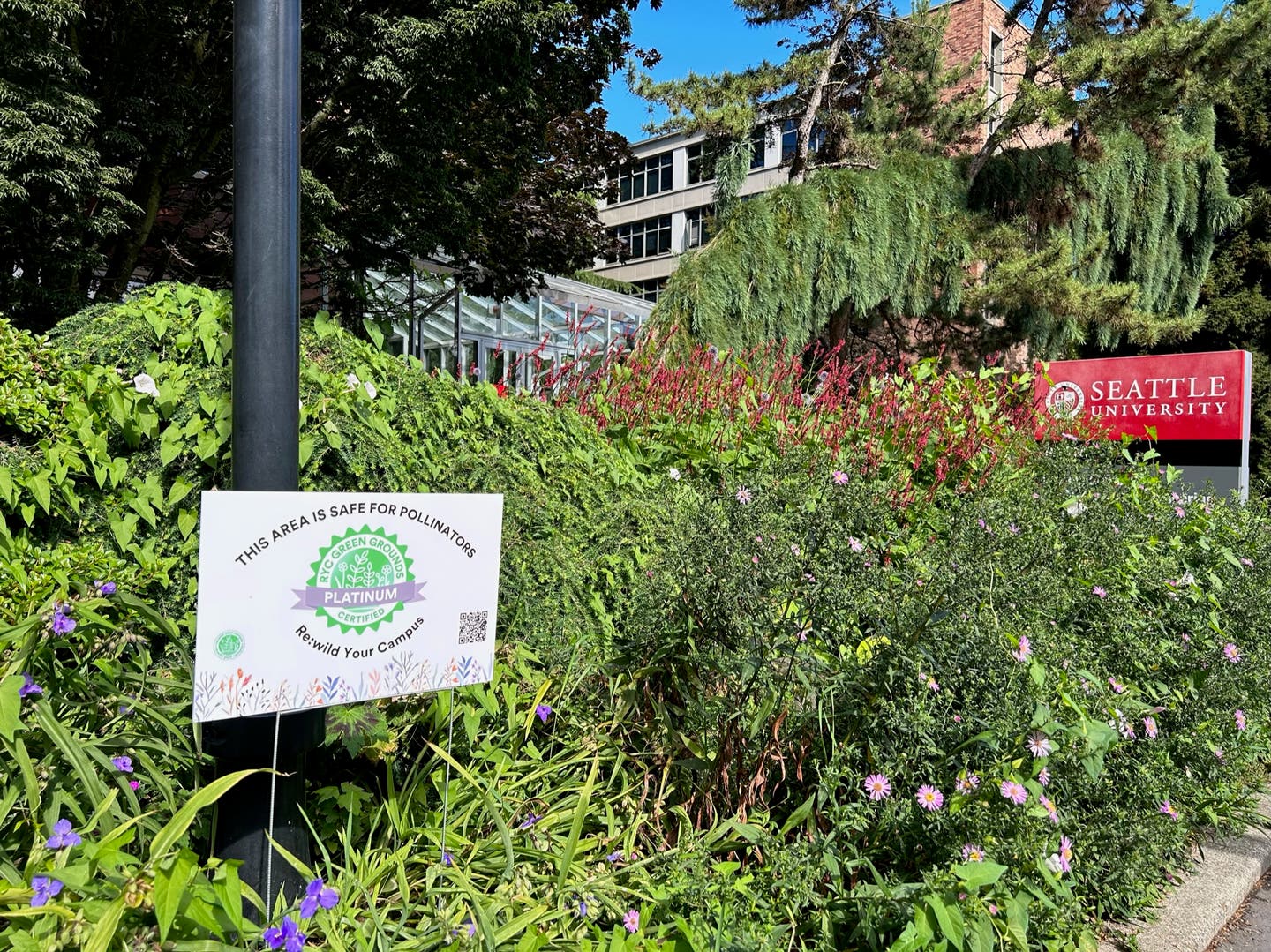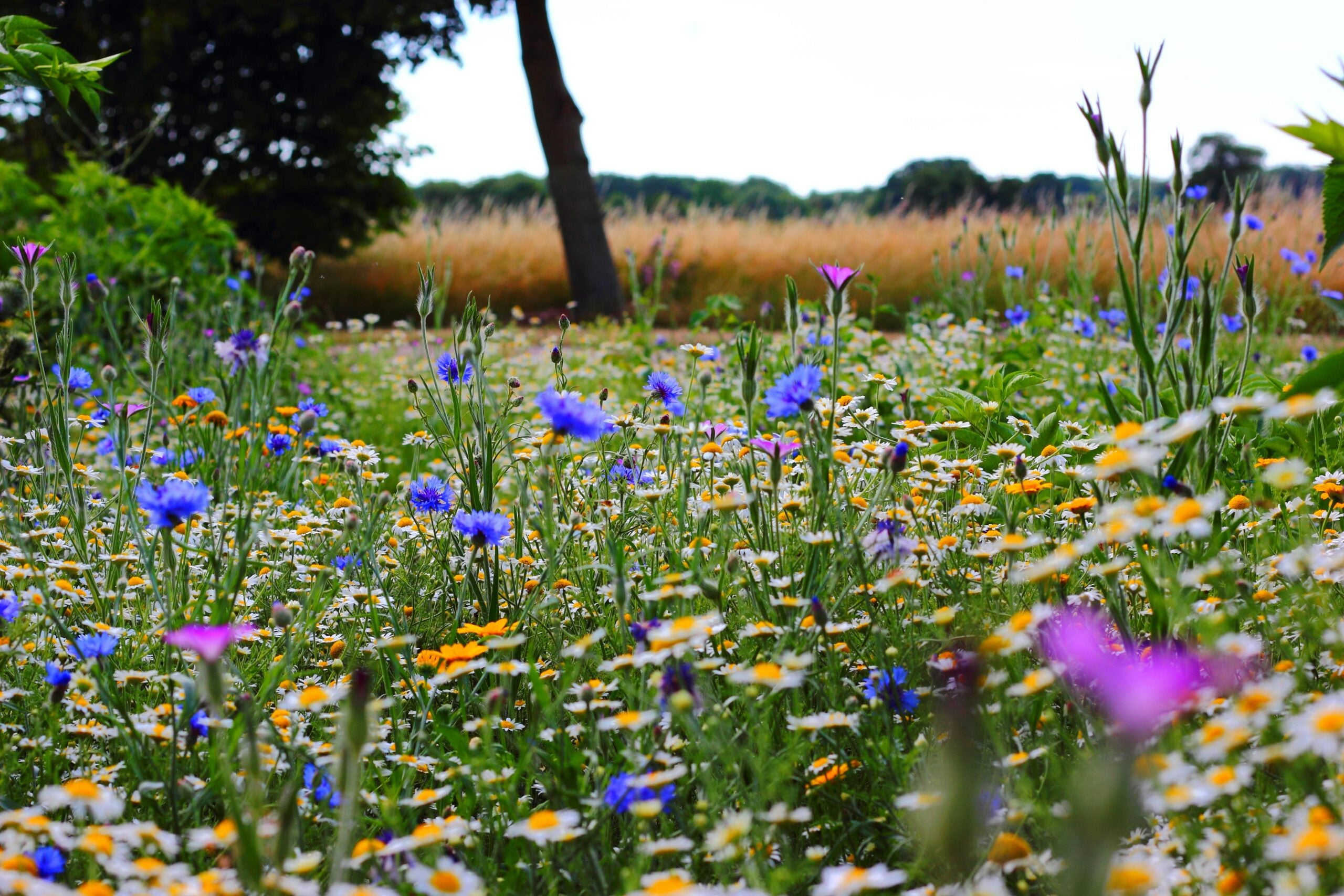Green Grounds Certification
Join a national network of campuses committed to organic, sustainable landcare.
Applyopens in new tabWhy seek Green Grounds Certification?
Network
Join a national community of campuses leading the shift to organic, chemical-free landcare.
Health
Reduce exposure to toxic pesticides linked to cancer, neurotoxicity, reproductive harm, and hormone disruption.
Soil
Protect vital microorganisms and adopt regenerative landcare practices that strengthen soil health.
Climate
Reduce emissions, increase biodiversity, and make your campus more resilient to climate change.
Certification Standards
The Green Grounds Certification recognizes progress at every stage of the transition to organic landcare. Campuses can earn one of four tiers - Bronze, Silver, Gold, or Platinum - by meeting the corresponding standards. Each tier builds on the one before it, meaning higher levels must also meet all the criteria of the previous standards.
Note: There are four different tiers included in this certification: Bronze, Silver, Gold, and Platinum. To acquire the Silver level, the campus must meet all of the Bronze Standards and Silver Standards; Gold level entities must meet the Bronze, Silver and Gold Standards; Platinum level entities must meet the Bronze, Silver, Gold, and Platinum Standards.
Read on below to explore each certification level and its specific requirements or take our quick survey to see where you stand.
Bronze
50% of managed areas of campus are managed without synthetic pesticides and meet the following criteria:
- Campus has an integrated pest management (IPM) plan or policy that indicates that synthetic pesticides should be used only as a last resort, and implements this policy
- Campus can detail work of any contractors contracted to do land management
- Campus has a plan to continue to reduce synthetic pesticide use and achieve higher levels of this certification
- Campus has pesticide usage reports (PUR reports) from past 12 months
- Campus is actively working to increase presence of native plants on campus
- Campus utilizes Re:wild Your Campus signage to showcase certification and highlight organic areas on campus
Silver
70% of managed areas of campus are managed without synthetic pesticides, meet all of Bronze criteria, and meet the following criteria:
- Campus grounds departments collaborate with students (or the public) and engage students (or the public) in campus land care
- Campus commits to procuring new technology that is electric for landscaping
- Campus is reducing synthetic fertilizer use and is transitioning to OMRI Certified Organic fertilizers
Gold
90% of managed areas of campus are managed without synthetic pesticides and fertilizers, meet all of Bronze + Silver criteria, and meet the following criteria:
- Campus grounds departments collaborate with students (or the public) and engage students (or the public) in campus land care
- Campus commits to procuring new technology that is electric for landscaping
- Campus is reducing synthetic fertilizer use and is transitioning to OMRI Certified Organic fertilizers
Platinum
100% of managed areas of campus are managed without synthetic pesticides and fertilizers, meet all of Bronze + Silver + Gold criteria, and meet the following criteria:
- Campus grounds departments collaborate with students (or the public) and engage students (or the public) in campus land care
- Campus commits to procuring new technology that is electric for landscaping
- Campus is reducing synthetic fertilizer use and is transitioning to OMRI Certified Organic fertilizers
Note: “Managed areas” include sports fields, campus grounds, housing, and other spaces overseen by campus staff or contractors.

Application Fee
Learn More About Fee Waiversopens in new tab
How to Apply
Apply Nowopens in new tab
Application Process
Certification Advisory Board
Barry Draycott
President and Owner
Chip Osborne
President of Osborne Organics
Founder of Organic Landscape Association
Richard McCoy
Founder and President
Fred Newcombe
President
Vanessa Armstrong
Organic Landscape Specialist and Consultant
Organic Landscape Solutions
Eric O'Brien
Director of Sustainability
Frequently Asked Questions
As a certified campus you will:
- Promote climate resilience
- Improve soil health
- Protect human and environmental health
Certified campuses will also:
- Be listed on the National Green Grounds Certification Directory
- Qualify for an Innovation credit in AASHE STARS 2.2 and likely as an Exemplary Practice in STARS 3.0
- Earn points through chemical inventory reporting under STARS 3.0
- Highlight your sustainability efforts via certification signage
- Be spotlighted in Re:wild Your Campus’ outreach channels
Native plants:
- Do not require fertilizers
- Require fewer pesticides and less water than lawns
- Help prevent erosion and reduce flooding
- Help reduce air pollution
- Do not require mowing (reduces carbon emissions and sequesters carbon)
- Provide shelter and food for wildlife
- Promote biodiversity and stewardship of natural heritage
- Enhance scenic beauty
Managed areas include all campus spaces maintained at least once a year by grounds crews, including housing and athletic fields.
Not included: hardscapes and areas requiring no maintenance. For example:
- A wild native prairie = managed (if monitored and pesticide-free)
- A forest requiring no maintenance = not managed
Sidewalks themselves don’t count, but greenery in sidewalk cracks and edges does.
- Campus gardens = count as managed areas
- Campus farms = do not count
- Agricultural research land = does not count
Yes! Please use our PUR tracking template to record chemical usage. This template can be downloaded and reused for record keeping. For certification, you will need to upload PURs (Pesticide Usage Reports).
Synthetic pesticides are man-made and have been linked to serious human and environmental harms, including cancer, neurological disorders, reproductive issues, and asthma. Glyphosate, one of the most common herbicides, is classified as a “probable carcinogen.”
Pesticides also contribute to climate change and degrade soil health. Synthetic fertilizers cause algal blooms and dead zones in waterways. Removing them is essential to protecting ecosystems and people.
Synthetic fertilizers provide limited soil benefits and often harm long-term fertility. They can:
- Deplete soil organic matter
- Run off into waterways and cause algal blooms
Going fertilizer-free ensures healthier soils and ecosystems.
Much landscaping equipment runs on fossil fuels. By adopting a sustainable procurement policy, schools can transition toward electric equipment, reducing carbon footprints and improving grounds sustainability.





